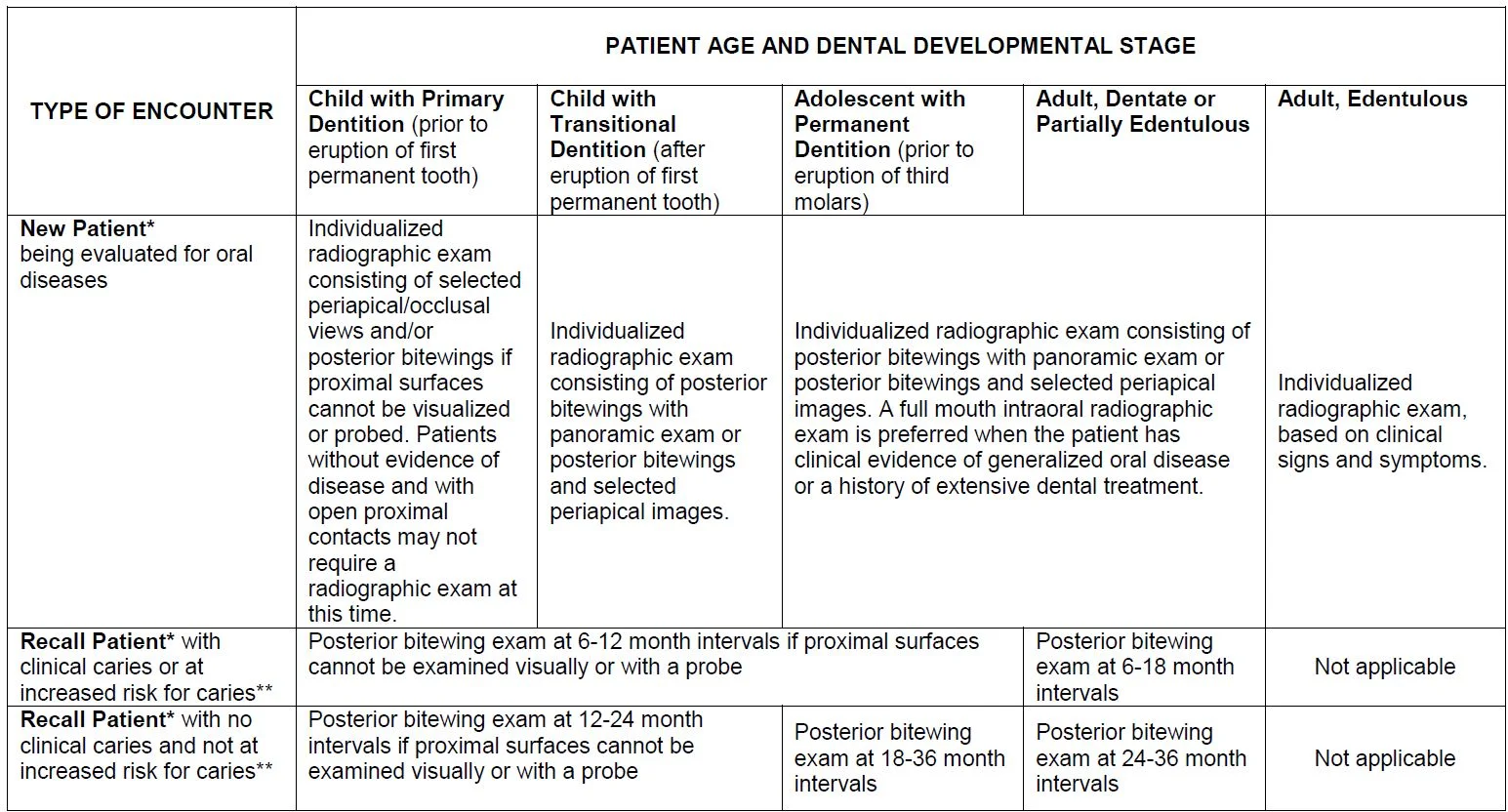How Often Should I Take Check-up X-Rays?
Summary:
Routine radiographs (x-rays) must be justified on an individual basis rather than used indiscriminately
If you are considered a high-risk individual for dental Disease, you will benefit from more frequent bitewing radiographs
If you are a considered a low-risk individual for dental Disease, you your bitewing radiographs can be taken less frequently
Panoramic radiographs should only be taken in the presence of specific clinical signs and symptoms. There is no justification for panoramic radiography at arbitrary time intervals
As a patient, it is in your best interest to know the justifications for taking routine x-rays
In this article, we're going to focus on routine x-rays done during dental examinations and check-ups. These are the x-rays that clinicians will suggest you update periodically during your cleaning/checkup appointments. Additional dental radiographs (e.g. periapicals, CBCT, etc) may be prescribed for various specific reasons, but we will focus on the frequency of routine x-rays in this article. There are 2 forms of routine radiographs which you may be familiar with:
Panoramic Radiograph
Bitewing Radiograph
Why do we take routine panoramic x-rays?
To assess dental development (eruption of adult teeth and wisdom teeth)
To diagnose abnormalities/pathologies of the craniofacial complex (head and skull area)
Why do we take routine bitewing x-rays?
To detect dental decay and other dental abnormalities
To monitor periodontal disease (gums and bone)
We use the ALARA (As Low As Reasonably Achievable) principle when prescribing radiographs, for the purpose of limiting your exposure to ionising radiation. The idea is to maximise the diagnostic information provided by radiographs while minimising your exposure to radiation. Therefore, the frequency of your routine radiographs should take into consideration your risk profile for cavities, gum disease, and other factors which may compromise your oral health.
According to the ADA (American Dental Association), the guidelines for radiographs are as follows (as of 2012):
If you have never been to a dentist for a comprehensive examination, or have only seen dentists on emergency basis, then you will be considered a New Patient.
For bitewings:
If you are a high risk of individual, then you could be recommended bitewings as frequently as every 6 months.
If you a low risk of individual, then you could be recommended bitewings as infrequently as every 3 years. The rationale for the 3 years for low risk individuals is that dental decay takes on average 3 years to penetrate the outer layer of the tooth (enamel).
For panoramic radiographs:
Panoramic xrays are prescribed to assess: lesions/pathologies, unerupted teeth, wisdom teeth prior to surgical intervention, orthodontic assessment, mandibular trauma, overall condition of grossly neglected mouths
Panoramic xrays are indicated where there is recent evidence of progressive pathology (recent trauma, change in occlusion, mandibular shift, sensory or motor alterations or change in range of movement)
Panoramic radiography provided little or no information that influenced diagnosis or patient management for TMJ symptoms
To assess disc position in cases of internal derangement in which simple treatments have been unsuccessful, it may be useful to use Magnetic Resonance Imaging (MRI)
In the situation where a clinical diagnosis of the condyle is required, it should be necessary to use Computed Tomography (CT)
Conclusion: Radiography is associated with a radiation dose and this means that its use must be justified on an individual basis rather than used indiscriminately. see your dentist for individualised recommendations. know the justification for your x-rays.



